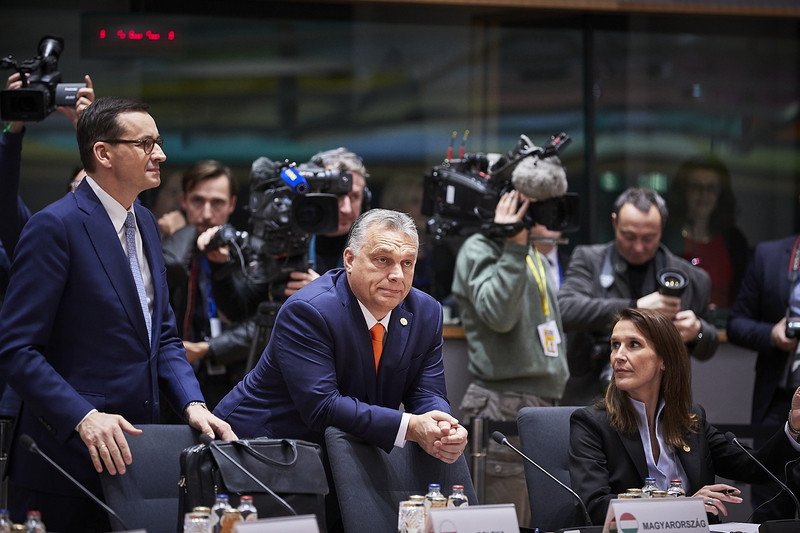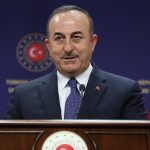Concern is growing in Budapest that Hungarian prime minister Viktor Orbán is delaying ratification of Finland and Sweden’s Nato accession for political reasons.
“There are rumours going round [in Hungarian political circles] that it might be because of Russia, because of the close relationship between Orbán and [Russian president Vladimir] Putin,” Ágnes Vadai, a senior MP from Hungary’s opposition Socialist Party, told EUobserver.
“Finnish and Swedish accession will make Nato stronger and that’s not in Russia’s interests,” she said.
Nato members agreed unanimously at a summit in Madrid in June to let the two countries join.
The two Nordic nations already take part in Nato meetings as “invitee” members, but aren’t covered by its mutual defence clause until all 30 Nato states ratify enlargement.
Some four months later, 28 out of 30 have done so already, leaving only Hungary and Turkey to make up their minds.
“So far, this has been the quickest ratification in Nato’s modern history,” a Nato official said.
‘Dirty political games’
Turkish president Recep Tayyip Erdoğan has made ratification conditional on Finland and Sweden’s extradition of alleged Kurdish terrorists, amid ongoing talks on the issue between Ankara, Helsinki, and Stockholm.
But Hungary’s parliamentary vote was meant to be a done deal, given that Orbán’s ruling Fidesz party as well as the Hungarian opposition have publicly backed the move.
“The [Swedish] government does not believe that Hungary has any outstanding questions surrounding the ratification of Sweden’s and Finland’s Nato applications,” the Swedish foreign ministry said.
“Hungary’s foreign, justice and defence ministers have all openly stated that they support Sweden’s and Finland’s applications,” it added.
But for Vadai, Orbán’s calculations might include what she called “dirty political games” that go beyond his friendly ties with Moscow.
“Orbán also has close ties with Ankara, not just politically, but also in terms of business ties, and Erdoğan doesn’t want to be left alone as the only Nato country blocking [Finnish and Swedish] accession,” she said.
“It would help Turkey’s position, if Erdoğan can say: ‘Look — even some EU countries also have doubts’,” she added.
“A third reason [for the delay] could also be access to EU funding, because Finland and Sweden are part of the club saying funds should be withheld [due to Orbán’s abuse of rule of law at home],” she also said.
The Hungarian foreign ministry did not reply to EUobserver’s questions.
Accession can’t be blocked indefinitely
Fidesz MPs are also keeping their domestic and Nordic peers in the dark, Vadai said. “They don’t tell us anything,” she said.
“When Finnish and Swedish delegates asked them about the delay while we were in Kigali, they blamed the delay on ‘practical problems’ with the parliamentary agenda, but that simply isn’t true,” she added, referring to conversations in the margins of an international parliamentary conference in Kigali this weekend, which she attended.
It wasn’t true, she said, because the Hungarian parliament, which resumed work on 26 September after its summer recess, could already have voted on the subject on 4 October if Orbán had wanted to.
It could complete the process in 24 hours with a four-fifths majority vote under a special fast-track procedure.
MPs will decide the agenda of the next session, due on 24 October, later this week in a moment of truth, she noted.
There will also be voting opportunities in November and December, she added.
Vadai said Orbán cannot block the process indefinitely given the overwhelming support for Nordic enlargement in the West.
“He knows that, as an EU and Nato member, he can’t do this,” she said. “It’s also in Hungary’s national security interest,” the former shadow defence minister added.
But if Orbán is trying to help Erdoğan, then Hungary might drag things out into next year, given suspicion among EU diplomats that the Turkish leader won’t give the green light before Turkish elections in June 2023.
“Sweden is engaged in ongoing dialogue with Turkey and Finland concerning the trilateral agreement [on counter-terrorist cooperation] signed at the Nato summit in Madrid,” the Swedish ministry said.
“Further meetings are expected,” it added.
The Finnish foreign ministry declined to comment.
By ANDREW RETTMAN
Source: EU Observer



